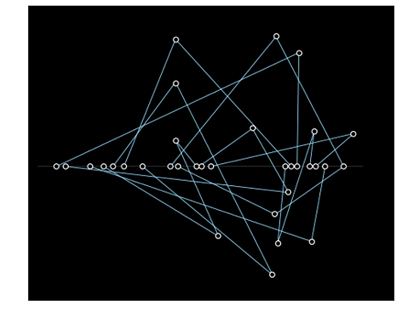AWS Machine Learning Blog
Tag: Amazon SageMaker
Ensure consistency in data processing code between training and inference in Amazon SageMaker
In this blog post, we’ll show you how to deploy an inference pipeline consisting of pre-processing using SparkML, inferences using XGBoost, and post-processing using SparkML. For this particular example, we are using the Car Evaluation Data Set from UCI’s Machine Learning Repository and training an XGBoost model to predict the condition of a car (i.e. unacceptable, acceptable, good, or very good).
Amazon SageMaker adds Scikit-Learn support
Amazon SageMaker now comes pre-configured with the Scikit-Learn machine learning library in a Docker container. Scikit-Learn is popular choice for data scientists and developers because it provides efficient tools for data analysis and high quality implementations of popular machine learning algorithms through a consistent Python interface and well documented APIs. Scikit-Learn executes quickly and can […]
Run SQL queries from your SageMaker notebooks using Amazon Athena
The volume, velocity and variety of data has been ever increasing since the advent of the internet. The problem many enterprises face is managing this “big data” and trying to make sense out of it to yield the most desirable outcome. Siloes in enterprises, continuous ingestion of data in numerous formats, and the ever-changing technology […]
Transfer learning for custom labels using a TensorFlow container and “bring your own algorithm” in Amazon SageMaker
Data scientists and developers can use the Amazon SageMaker fully managed machine learning service to build and train machine learning (ML) models, and then directly deploy them into a production-ready hosted environment. In this blog post we’ll show you how to use Amazon SageMaker to do transfer learning using a TensorFlow container with our own […]
Classify your own images using Amazon SageMaker
Amazon SageMaker is a fully managed service that supports all of the steps of a ML model’s development: data exploration and building, training, and deploying ML models. With Amazon SageMaker, you can pick and use any of the built-in algorithms, reducing the time to market and the development cost.
Call an Amazon SageMaker model endpoint using Amazon API Gateway and AWS Lambda
December 2022: This post was reviewed and updated for accuracy. At AWS Machine Learning (ML) workshops, customers often ask, “After I deploy an endpoint, where do I go from there?” You can deploy an Amazon SageMaker trained and validated ML model as an online endpoint in production. Alternatively, you can choose which SageMaker functionality to […]
Enhanced text classification and word vectors using Amazon SageMaker BlazingText
Today, we are launching several new features for the Amazon SageMaker BlazingText algorithm. Many downstream natural language processing (NLP) tasks like sentiment analysis, named entity recognition, and machine translation require the text data to be converted into real-valued vectors. Customers have been using BlazingText’s highly optimized implementation of the Word2Vec algorithm, for learning these vectors from […]
Object Detection algorithm now available in Amazon SageMaker
Amazon SageMaker is a fully-managed and highly scalable machine learning (ML) platform that makes it easy build, train, and deploy machine learning models. This is a giant step towards the democratization of ML and in lowering the bar for entry in to the ML space for developers. Computer vision is the branch of machine learning […]
Build multiclass classifiers with Amazon SageMaker linear learner
Amazon SageMaker is a fully managed service for scalable training and hosting of machine learning models. We’re adding multiclass classification support to the linear learner algorithm in Amazon SageMaker. Linear learner already provides convenient APIs for linear models such as logistic regression for ad click prediction, fraud detection, or other classification problems, and linear regression […]
Amazon SageMaker DeepAR now supports missing values, categorical and time series features, and generalized frequencies
Today we are launching several new features for DeepAR in Amazon SageMaker. DeepAR is a supervised machine learning algorithm for time series prediction, or forecasting, that uses recurrent neural networks (RNNs) to produce probabilistic forecasts. Since its launch, the algorithm has been used for a variety of use cases. We are excited to give developers access to new […]








